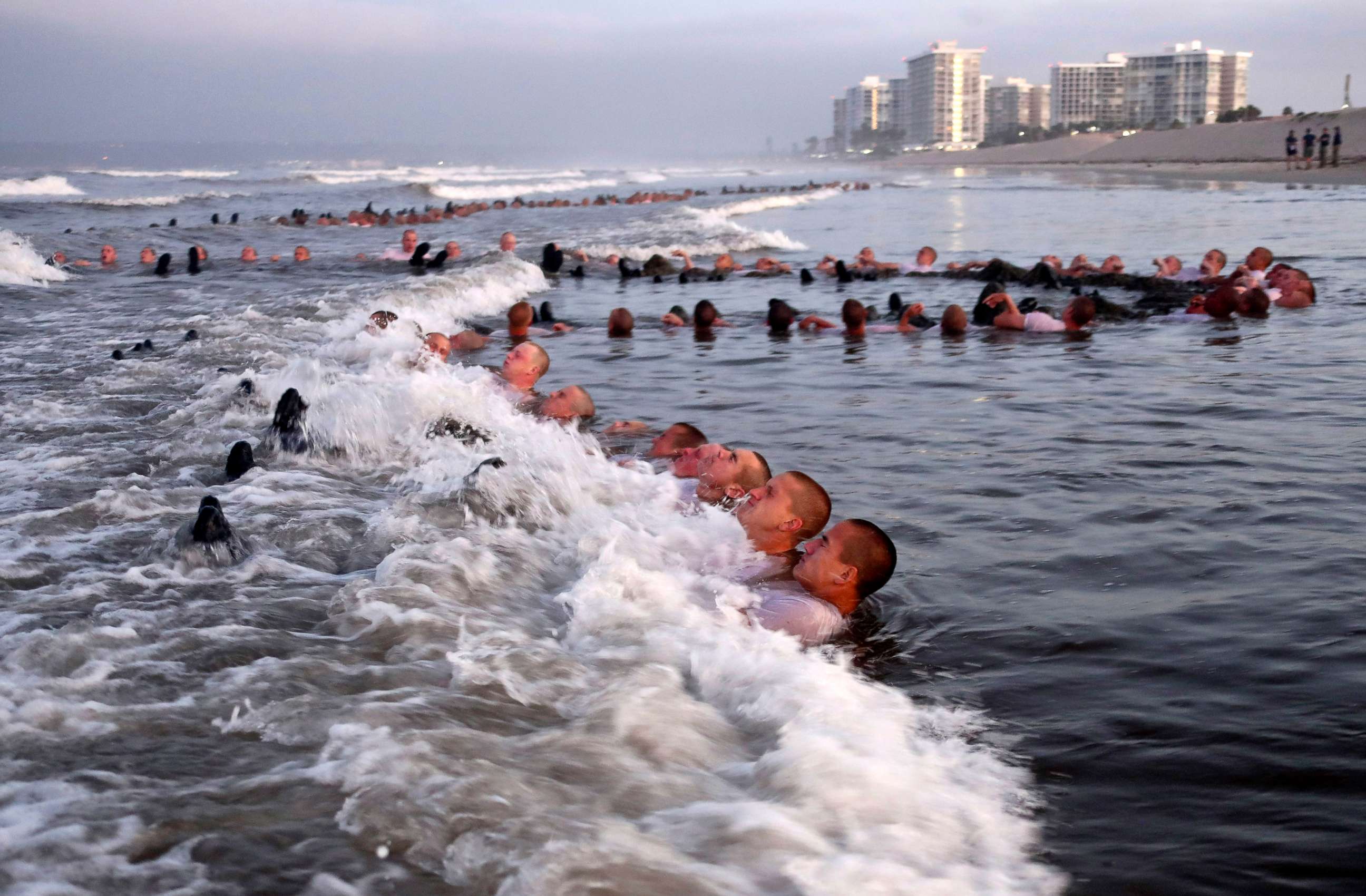Navy SEAL candidate dies after 'Hell Week' training
Another sailor is hospitalized with unknown symptoms.
A Navy SEAL candidate has died and a second is in the hospital after falling ill on Friday just hours after both had successfully completed the grueling culmination of initial SEAL training known as "Hell Week."
Both sailors were quickly taken to local hospitals hours after they began showing symptoms of illness.
On Sunday, the Navy identified Seaman Kyle Mullen, 24, of Manalapan, New Jersey, as the SEAL candidate who died. He was assigned to the Naval Special Warfare Basic Training Command in San Diego, California.
"We extend our deepest sympathies to Seaman Mullen's family for their loss," Rear Adm. H.W. Howard III, commander of the Naval Special Warfare Command, said in a statement.
Mullen was pronounced dead at 5:42 p.m. Pacific Standard Time on Friday at Sharp Coronado Hospital in San Diego, officials said. His cause of his death remains under investigation.

The name of the hospitalized SEAL candidate was not released, but they are in stable condition at Naval Medical Center in San Diego, officials said.
"Two SEAL candidates, assigned to Naval Special Warfare Basic Training Command, were taken to the hospital on Feb. 4 several hours after their Basic Underwater Demolition SEAL (BUD/S) class successfully completed Hell Week, part of the first phase of the Navy SEAL assessment and selection pathway," said a statement from the Navy's Special Warfare Command.
"We are all saddened by the unfortunate passing of Kyle Mullen. As a member of our 2019 championship team, he will be remembered not just as a excellent player, but also as an excellent person and a great teammate," said Kevin Callahan, the head football coach of Monmouth University, where Mullen played football, in a statement. "He was highly motivated on the field, but his maturity, intelligence, and concern for his fellow teammates is what stands out about Kyle. On behalf of President Leahy and the entire Monmouth University community, we wish to offer condolences to the Mullen Family on their loss."

Hell Week is the famous end to the first phase of BUD/S training where sailors who want to be SEALs are pushed to the limit of physical and mental exhaustion through a series of intense training. More than half of the SEAL candidates who go through Hell Week do not complete the grueling week of training that allows them to continue on through the six months of SEAL training.

"Both Sailors were not actively training when they reported symptoms and were transported to receive emergency care," the statement from the Navy added.
The last Navy SEAL candidate to die during BUD/S training was 21-year-old Seaman James Lovelace who drowned in a pool during his first week of training in May 2016. After his drowning, the Navy instituted additional safety protocols to the swimming program.
"SEAL training takes you beyond your personal limits," said Eric Oehlerich, a retired SEAL and ABC News contributor. "It's designed to push you beyond your perception of what's possible, breaking glass ceilings of what you're capable of both mentally and physically."
Oehlerich said he believes the difficult training for prospective SEALs is carried out within proven medical boundaries and run by highly trained professional instructors, but he acknowledged that there are risks involved in all types of military training.
"From time to time training fatalities do occur. Although tragic, adhering to the training curriculum keeps SEALs alive in combat," he said. "It's necessary, it can't be diluted."
"Condolences to the family of the trainee," Oehlerich said. "They'll always be a part of the community and we will always be there as able."




